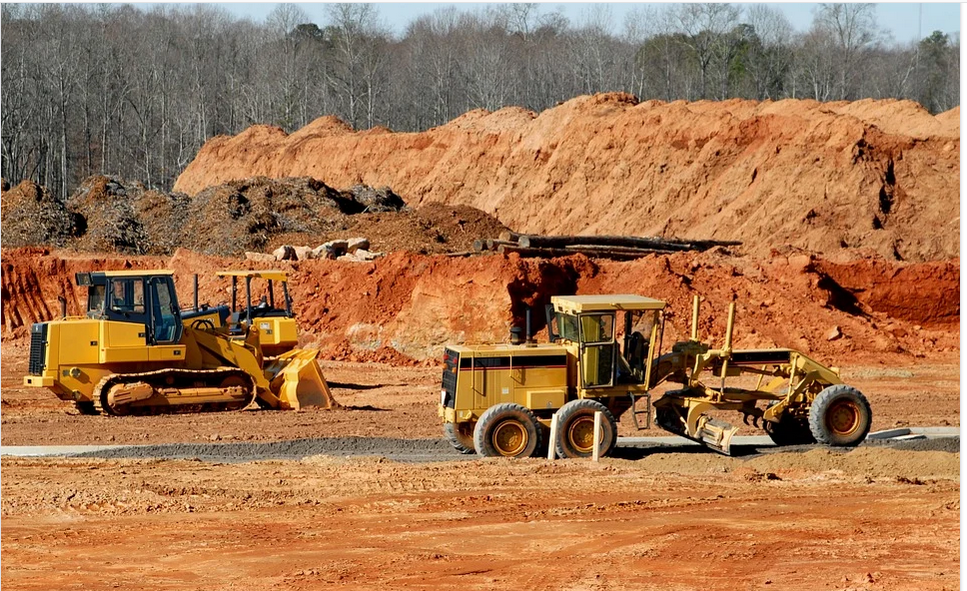
- Tradies are moving away from owning gear due to high costs and maintenance demands.
- Hiring offers a flexible, cost-effective way to access quality tools without significant investments.
- Local hire providers give fast support, flexible terms, and help tradies stay productive on-site.
- Understanding hire agreements, insurance, and service quality is key to smart hiring decisions.

Margins are tighter than ever in the trades. Whether you’re a carpenter, plumber, or concreter, you’ve probably felt the pinch—materials cost more, clients are more cautious with budgets, and downtime from unreliable gear can sting. The pressure to stay profitable while juggling these challenges isn’t going anywhere.
That’s why more and more tradies are rethinking how they handle tools and machinery. Instead of locking money in expensive gear, they’re turning to a smarter, more flexible option—equipment hire. It’s not just about convenience anymore. It’s becoming a key way to boost margins and stay competitive without sacrificing quality on the job.
The High Cost of Ownership
Owning your tools used to be a rite of passage. The shed full of gear was almost a badge of honour. But here’s the thing—owning doesn’t always make financial sense anymore. It’s starting to look more like a liability than an asset for many tradies.
Let’s break it down. First, there’s the upfront cost. Investing in quality equipment—a jackhammer or a mini excavator—requires serious cash. That money is tied up from day one, and tools don’t take long to lose value. Unlike a work ute that you might keep for a decade, many machines depreciate fast and need upgrades to stay current.
Then there’s maintenance. Keeping gear in good shape means regular servicing, downtime, and replacement parts. That’s when you’re not billing and money goes out the door. Add to that the cost of storage, security, insurance, and transporting gear from site to site, and suddenly owning your equipment starts to feel like dragging around an anchor.
For sole traders or small crews, these costs can be a real burden, especially when seasonal work or projects vary in size. And if a big job pops up and you don’t have the right equipment? That’s another investment or lost opportunity.
Why More Tradies Are Choosing to Hire
Hiring gear flips the equation. Instead of owning everything outright, tradies are now choosing access over ownership. Need a scissor lift for a week? Or a concrete saw for a couple of days? Just hire it when you need it, and hand it back when you’re done. No maintenance. No storage. No strings attached.
This flexibility is a game-changer. It lets you take in a broader range of jobs without stretching your resources. You’re not committing thousands of dollars to something you might only use a few times a year. You’re freeing up cash to focus on other parts of your business—marketing, staff, or simply keeping your cash flow healthy.
For tradies working on tight budgets or managing unpredictable workloads, using affordable equipment hire for tradies to stay competitive makes a lot of sense. It gives you access to the latest tools and machines without the financial pressure of owning them outright.
Plus, rental gear is often better maintained than you might keep in your shed. Hire companies typically inspect and service everything between hires, making you less likely to get stuck with faulty equipment mid-job.
How Hiring Supports Project Flexibility
In the trades, no two weeks look the same. One month, you’re working on a multi-unit build; the next, it’s a few smaller residential jobs. That kind of variation can make it tough to plan your gear needs ahead of time. Hiring gives you the breathing room to respond to whatever lands on your desk, without scrambling to buy new tools or stretch the ones you’ve got past their limits.
This flexibility is convenient when you take on specialist work or something outside your usual scope. Let’s say you land a job that requires a compactor or a trenching machine you don’t normally use. Instead of turning down the work or rushing to buy equipment that might just gather dust later, hiring means you can just grab what you need, use it, and return it. Job done. No stress.
It also lets you scale up quickly. Do you have a big contract and need more gear to complete it on time? You can bring in exactly what you need for the project’s duration, then scale back as soon as it wraps. That kind of agility keeps your overheads down and your margins healthy.
And for tradies working across multiple sites, hire companies can often deliver the equipment directly where needed, saving you time and hassle. You’re not spending your early mornings running between sheds and job sites. You’re showing up ready to work with everything already there.
The Local Advantage and Support Services
There’s also a lot to say about going local regarding equipment hire. Working with a nearby provider means you’re not waiting days for deliveries or chasing down support from across the country. You’ve got real people who understand your work and know how urgent things can get when a job’s on the line.
Need a last-minute replacement? A good local hire shop often has someone out to you the same day. That kind of support is a lifesaver when deadlines are tight and clients are breathing down your neck. You’re not left waiting for gear, and your crew stays productive.
Many local companies also offer flexible hire terms, letting you extend or shorten as needed. They understand that job timelines shift and are usually more willing to work with you to find a solution that fits. It’s not a one-size-fits-all deal—it’s a partnership that works for your schedule and business.
Let’s not forget that supporting local hire businesses also strengthens your local industry. It keeps jobs, services, and expertise close to home, which benefits everyone in the long run.
Things to Consider Before You Hire
Hiring equipment can be a game-changer, but it still pays to be smart. Not all hiring companies are created equal, and not every deal is as good as it sounds. Before you sign off on any hire agreement, take a few minutes to check the details.
First, inspect the gear or ask for a maintenance history. You don’t want to be stuck with a dodgy machine that breaks down mid-job. A reputable hire provider will be upfront about the condition of their tools and keep everything regularly serviced.
Then, read the fine print. Ensure you understand precisely what’s included in the hire fee and what counts as extra, such as delivery, damage cover, or fuel. Some contracts have mileage caps or late return penalties, so knowing where the boundaries are is worthwhile before you’re hit with surprise costs.
Insurance is another big one. Check whether the equipment is covered for theft or accidental damage while in your care. If it isn’t, you might need to add it to your business policy or pay extra for coverage through the hiring company. It’s a small step that can save you thousands.
Lastly, consider customer support. If something goes wrong on-site, you want a company that answers the phone and sorts things out quickly. Look for providers with a solid reputation for service—you’ll thank yourself later when you’re up against a tight deadline.
Conclusion
Tradies across the country are rethinking what it means to run a lean, profitable business. With rising costs and increasing competition, flexibility is no longer a bonus—it’s a necessity. Hiring equipment allows you to take on more work, reduce overheads, and move fast when opportunity knocks.
It’s not just about avoiding the cost of ownership. It’s about building a more innovative, more adaptable way of working that suits the reality of modern construction. Whether you’re a one-person crew or managing a growing team, re-evaluating how you access your tools could be the edge that keeps your margins strong and your business thriving.
Keep an eye for more latest news & updates on Buzz Feed!




